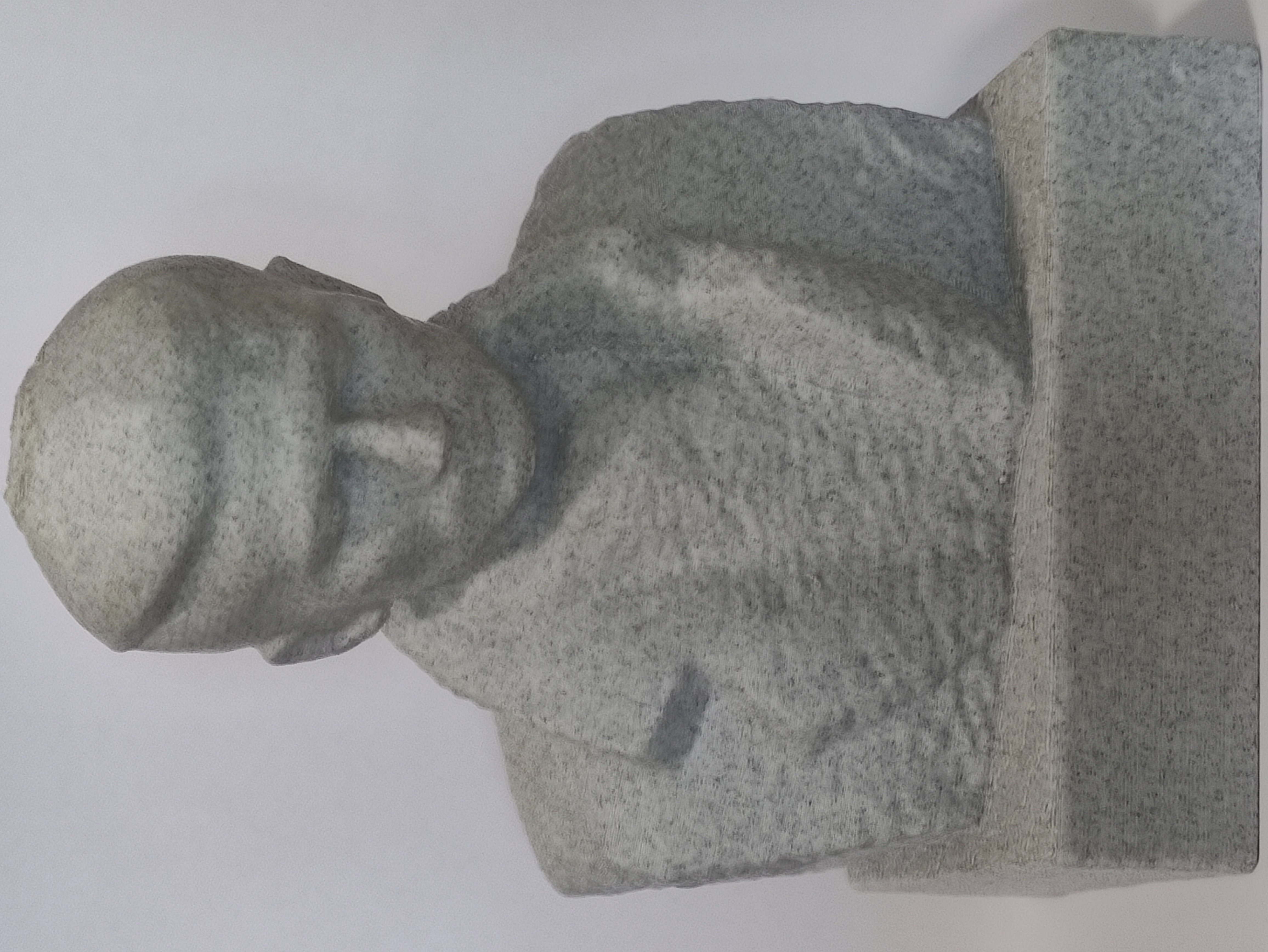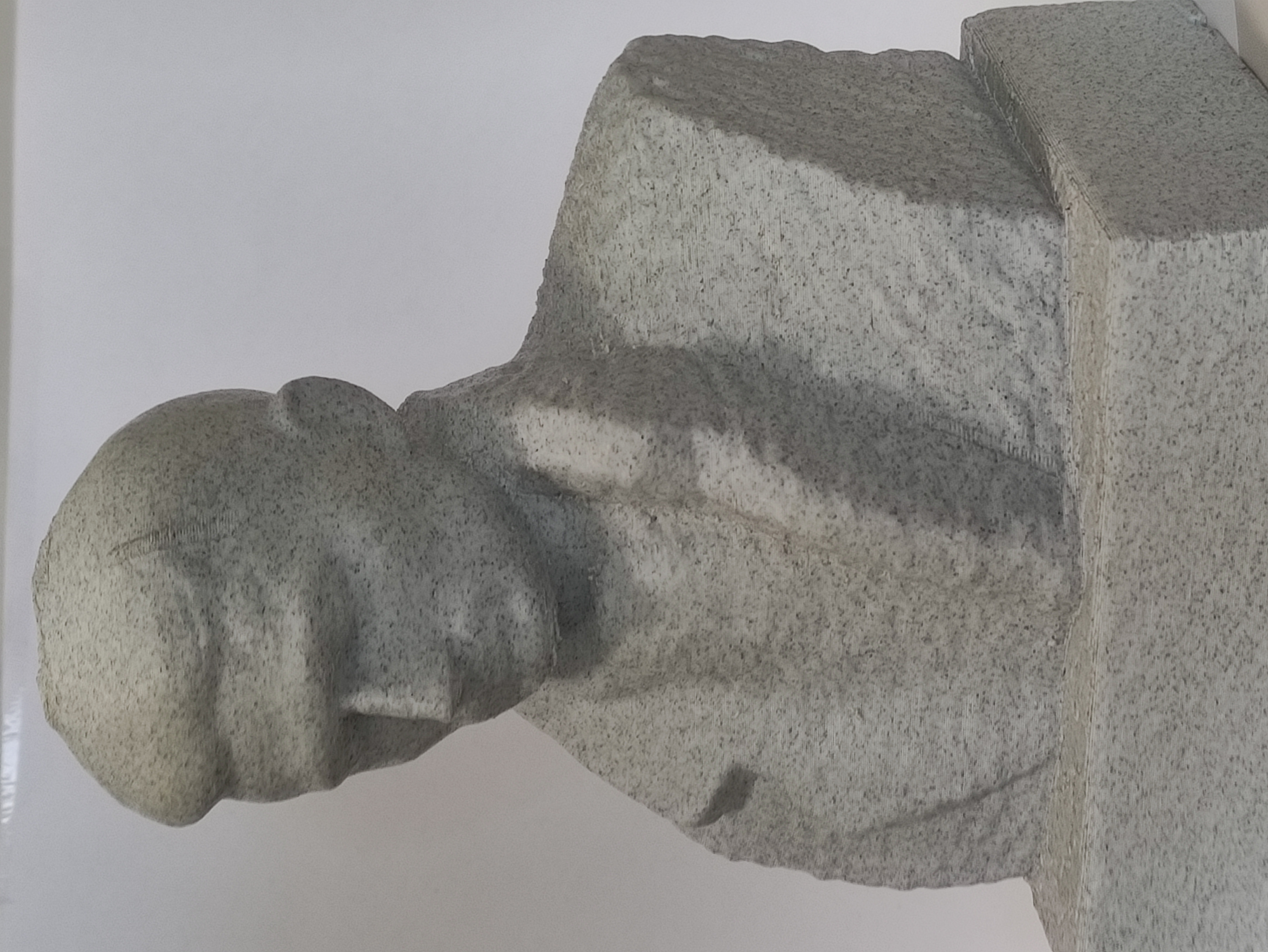Valter – Smart 3D printed souvenir
- Dimension:8cm (W) × 9cm (H) × 12cm (D)
- Material:Made from eco-friendly, biodegradable plastice
- Design and production:Expertly designed for 12 hours, 3D printed in 7 hours
- Packing:Eco-friendly and recyclable; return it and receive a discount on your next purchase
- Maintenance instructions:Keep away from direct sunlight; handle with care, especially during transport
- Impact:With every purchase, you help restock local rivers and lakes
- Interactive feature:Scan the QR code and explore the rich history of Sarajevo
- Ecology:Part of the funds from the purchase of this souvenir will be used for restocking lakes and rivers in Bosnia and Herzegovina
Made in Bosnia and Herzegovina
ABOUT THE PERSON
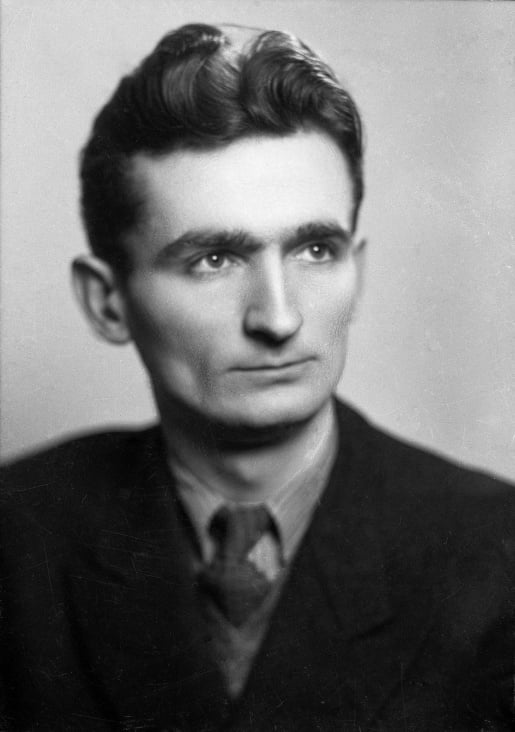
Sarajevo, a city as solid as a rock and as gentle as a sevdalinka, has remembered many heroes throughout its history, but few have remained as deeply rooted in the hearts of people as Vladimir Perić Valter. A name that is not forgotten, a look that is recounted, and an attitude that, although voiceless, can still be heard in the sound of the tram, in the whisper of Ferhadija, in the heartbeat of the city. Valter was not just a man – he was a symbol of defiance, resistance and pride of Sarajevo.
Today, his statue stands on Skenderija, looking up with his head held high, as a reminder that some people are greater than their time. He is not just a bronze relief of the past – he is the face of a city that is not afraid to stand up when the going gets tough.
Today, his statue stands on Skenderija, looking up with his head held high, as a reminder that some people are greater than their time. He is not just a bronze relief of the past – he is the face of a city that is not afraid to stand up when the going gets tough.
HISTORY
Born in 1919 in Prijepolje, Vladimir Perić felt injustice in a world that was crumbling under the burden of fascism as a young man. He joined the partisans and became part of the illegal resistance movement against Nazi Germany. But Sarajevo was his stage - a city where everything was decided, where risk was an everyday thing, and death often walked right next to his shoulder.
Valter worked as an organizer and leader of underground partisan cells in Sarajevo. He was the one who knew how to deceive the occupier, how to move through narrow streets and pass messages from hand to hand, from voice to voice. It was said that he knew how to enter the Gestapo building and leave without a single question, with a smile that confused even the most cold-blooded officers.
He was killed by a Nazi sniper on April 6, 1945, on the very day of the liberation of Sarajevo. And just then, when freedom was knocking on the door, Valter stayed in front of it, as a guard. He did not experience liberation, but he made it possible.
Valter worked as an organizer and leader of underground partisan cells in Sarajevo. He was the one who knew how to deceive the occupier, how to move through narrow streets and pass messages from hand to hand, from voice to voice. It was said that he knew how to enter the Gestapo building and leave without a single question, with a smile that confused even the most cold-blooded officers.
He was killed by a Nazi sniper on April 6, 1945, on the very day of the liberation of Sarajevo. And just then, when freedom was knocking on the door, Valter stayed in front of it, as a guard. He did not experience liberation, but he made it possible.
CHARACTER
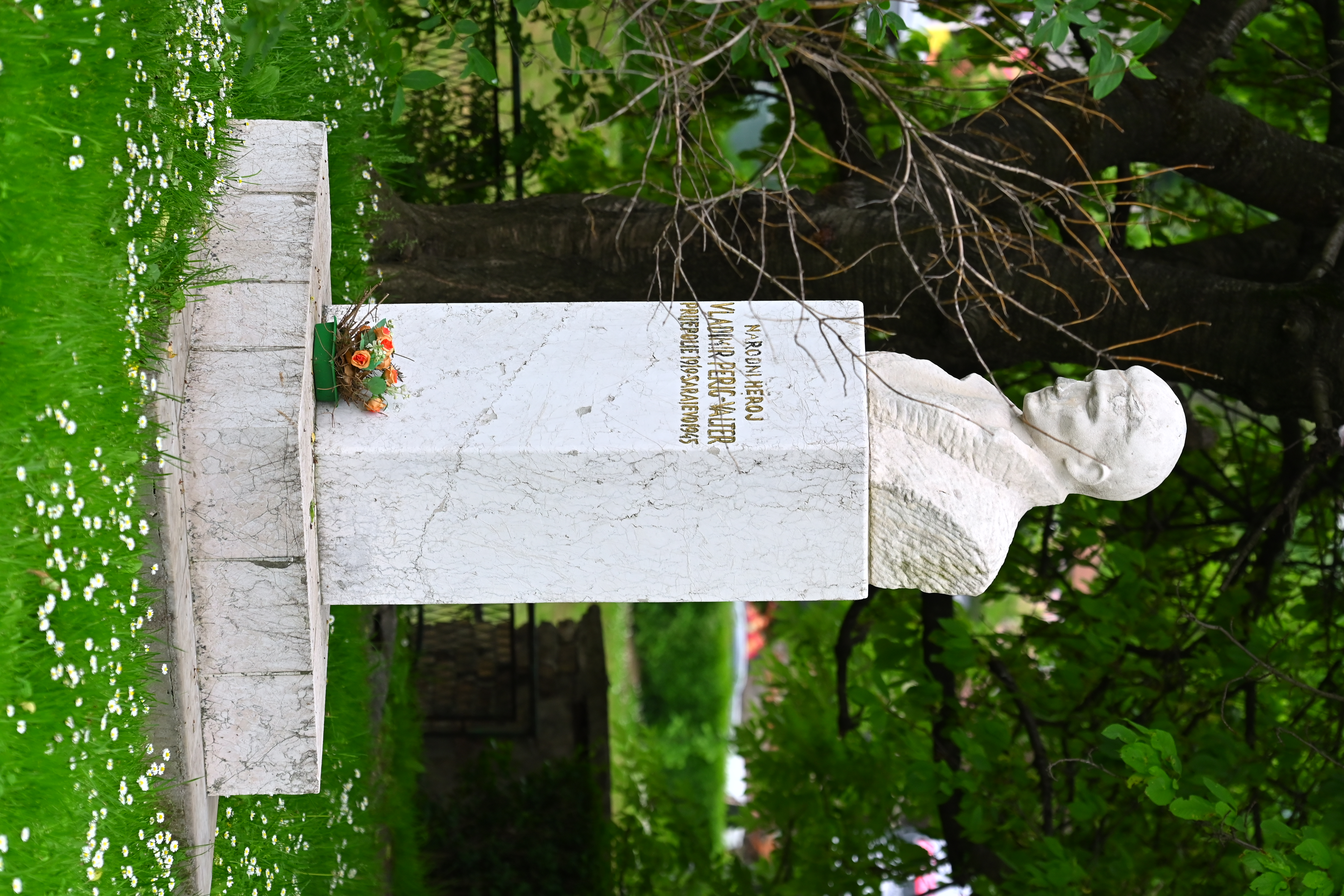 Valter was not loud. He did not need to raise his voice to be respected. He walked quietly, but his footsteps echoed through the streets of Sarajevo. He was a man of the people – humble, brave, always among the people. Kind to the weak, uncompromising to the oppressors.
Valter was not loud. He did not need to raise his voice to be respected. He walked quietly, but his footsteps echoed through the streets of Sarajevo. He was a man of the people – humble, brave, always among the people. Kind to the weak, uncompromising to the oppressors.
His comrades said that he had an extraordinary ability to feel people – he knew who was honest, who was ready to fight, and who was not trustworthy. He was a visionary, but never conceited. Brave, but never unreasonable. There was determination in his eyes, peace in his words, and freedom in his actions.
Valter was a leader without a uniform, a strategist without a map, a friend without reservations. Although young, his spirit was as old as the city itself.
MONUMENT TO VALTER PERIĆ
In Skenderija, where the past and the present meet, where youth breathes with all their might and where old trams alternate with new generations, there is a bust of Valter Perić. It is made of dark bronze that over time takes on the nuances of history – dark as the smoke of war, but bright as the freedom he fought for.
The base of the bust is made of stone from the Bosnian mountains, as solid as his character. His face is calm, determined, as if he is still observing the city and telling everyone who passes by: “This is my city.”
His hands are not shown, because Valter was not a man of gestures – he was a man of ideas. And it is precisely this idea of a free Sarajevo that resonates in every aspect that lingers on his bust.
The base of the bust is made of stone from the Bosnian mountains, as solid as his character. His face is calm, determined, as if he is still observing the city and telling everyone who passes by: “This is my city.”
His hands are not shown, because Valter was not a man of gestures – he was a man of ideas. And it is precisely this idea of a free Sarajevo that resonates in every aspect that lingers on his bust.
SHORT STORY
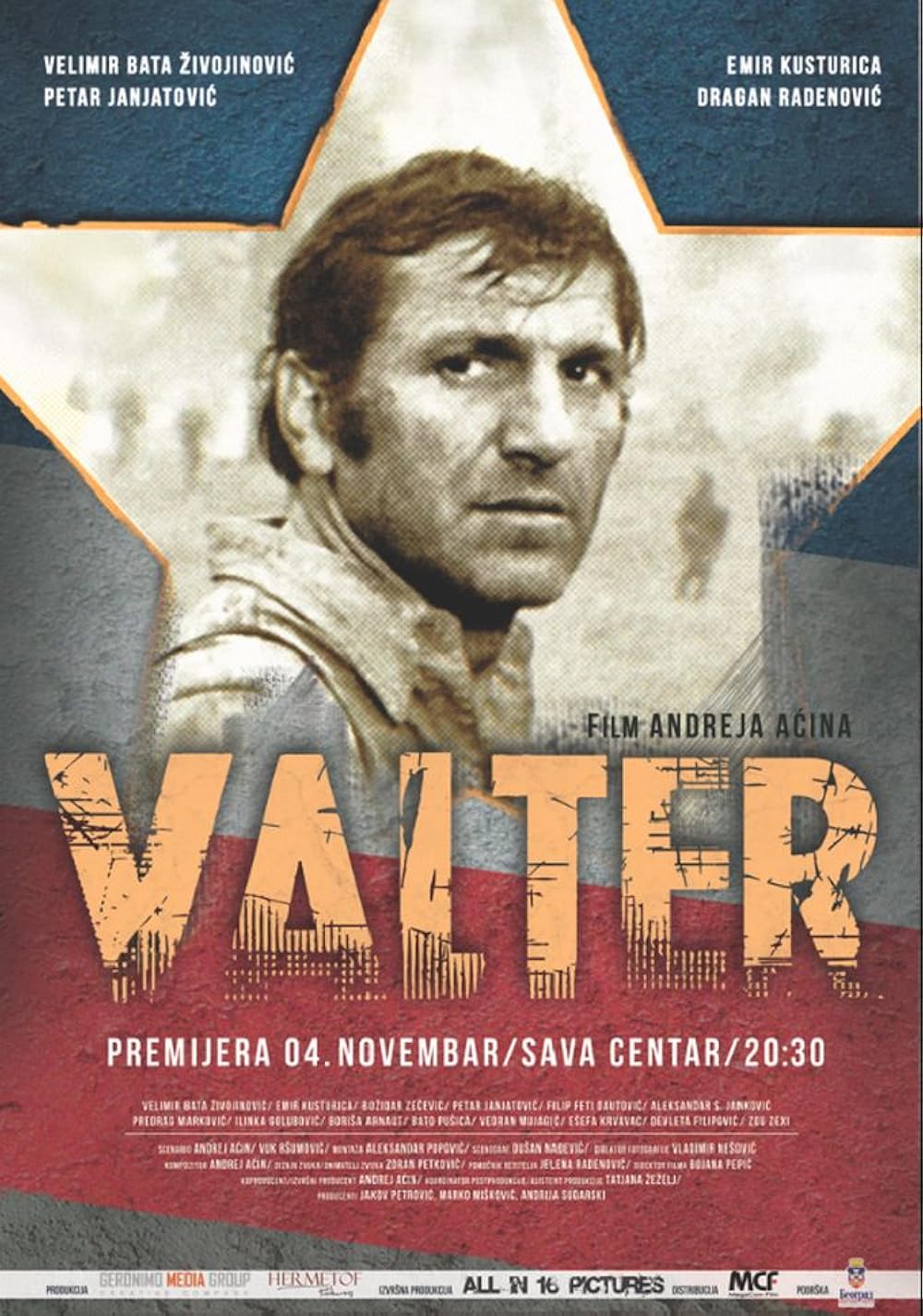 Night has fallen, and the city is quiet. The streetlights flicker like candles in a church, and Valter sits in a smoky basement, just below the tram stop at Marindvor. The clock shows ten-fifteen. His hands don't shake as he arranges codes and schedules on a piece of old paper. Next to him stands a boy, a courier, barely fifteen years old, in torn shoes and with a red scarf tied around his neck.
Night has fallen, and the city is quiet. The streetlights flicker like candles in a church, and Valter sits in a smoky basement, just below the tram stop at Marindvor. The clock shows ten-fifteen. His hands don't shake as he arranges codes and schedules on a piece of old paper. Next to him stands a boy, a courier, barely fifteen years old, in torn shoes and with a red scarf tied around his neck.
- Are you ready, little one? - Valter asks him, quietly, almost in a whisper.
The boy nods, although his heart is pounding like it's going to jump out. Valter hands him the paper.
- Take this to Yusuf in the Courtyard. You mustn't stop. If anyone stops you, throw the paper into Miljacka. Do you know where the turnoff is at Bentbaša?
The boy nods. Valter puts his hand on his shoulder.
- If I fall tonight, you know what to do. This city is not free until its streets are full of laughter again.
The boy disappears into the night, and Valter lifts his collar and goes out the back door. On the street, he feels the cold air of April, but also the smell of freedom that is coming. His steps are quiet, but sure. And as he walks through the narrow streets, only one thought echoes in his head: "Sarajevo must not fall."
